Photo Credit: Victor Boyko
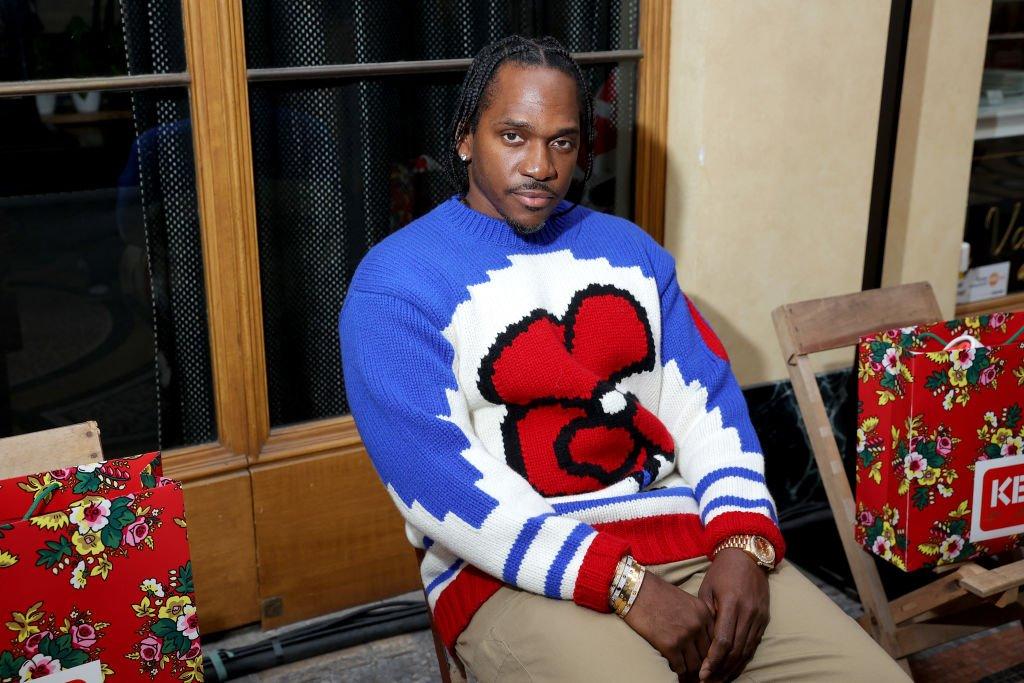
list
5 Takeaways From Pusha T’s New Album ‘It’s Almost Dry’
The Dr. Seuss of Dope gives rap fans much to ingest on his masterpiece fourth album
You couldn’t escape the hype train around Pusha T’s fourth album, It’s Almost Dry, released on April 22. Few artists have the power to make click-and-scrollers slow down long enough to give a new release the attention it deserves.
But the Picasso of the Pyrex, King Push, has an effect on hip-hop unlike anyone before him or to come after.
As one-half of the rap duo the Clipse, he and No Malice set the standard for how "coke raps" were delivered from state to state. Push then upped the ante as a solo artist and president of Ye’s G.O.O.D. Music imprint, servicing audiophiles and rap fiends with vivid, luxe-infused bars that had internet sleuths searching for the origins of his Lanvin-laced lyrics.
Few rappers are operating at a competitive level this far into their careers, placing Pusha T — already one of the game’s most legendary wordsmiths — into rarefied air. Authentic in the streets and history-making when it comes to pop culture and the charts, Pusha T gets the GRAMMY.com examination, as we dive into the key takeaways from It’s Almost Dry.
1. The Holy Triumvirate of Pusha-Ye-Pharrell Is a Full Circle Moment
There may be no other artist outside of Jay Z that connects with Pharrell Williams and Kanye West quite like Pusha T. After hearing him on Nigo’s "Hear Me Clearly" record, Virginia P famously challenged Push to "not become a mixtape rapper for the rest of his life." The gauntlet was officially thrown down between the two megaproducers.
Armed with the clout (and a decades-long history of collaboration), Pusha T convinced Pharrell and Kanye to produce an entire album for him. The resulting It’s Almost Dry highlights the best, and varied, things each beatsmith wanted from Push.
"[Kanye] only wants bars, all day, all night — he wants a thousand of them," Push explained in a sit-down with High Snobiety. "Pharrell wants to sit there with me. He uses the term ‘composition’ a lot [...] and it made for such a colorful, well-rounded album because I took both of them and did what they asked of me. And it just works."
The energy between the three parties fuels It’s Almost Dry to go further than they’ve ever gone before, possibly making one of the best rap albums of the year.
2. There’s No ‘Yuugh!’ Anywhere
Adlibs have been a staple in rap, but the last decade has seen them turn into a calling card from those who reign in the upper echelon of hip-hop. Pusha T's "yuugh" has been something that, whenever dropped on a track, signifies that he meant that s**t. Audiences have come to love and appreciate his signature yuugh, but will be surprised to learn that it doesn’t appear anywhere on It’s Almost Dry.
You can only say the type of s**t Pusha T says when you’ve achieved a certain level of success. King Push, he’s more than earned the right to deliver the product how he best sees fit, yuugh!
3. Ye Continues To Explore Family Issues
Listening to It’s Almost Dry can put someone in a fever dream, yet thankfully, Ye (the artist formerly known as Kanye West) tempers the barbiturate bars with some sobering thoughts. For example, "Dreamin Of The Past" — which takes its title from John Lennon’s "Jealous Guy," by way of a sample of Donny Hathaway's version of the song — finds Yeezy in reflection mode, closing the track with some family-centered ponderings.
"Born in the manger, the son of a stranger/When daddy’s not home, the family’s in danger," he raps. On "Rock N Roll" (which also marks the final collaboration between Ye and Kid Cudi), the former references his late mother, Donda West ("Love my mama but sometimes dad was right/Take his hand, hold on with all of your might"), not wanting to argue with his ex-wife and wanting a Bel-Air-styled mansion ("I used to watch the ‘Fresh Prince’ and pray the house would be mine/Could have bought it but I ain’t like the way the kitchen [was] designed").
Ye has remained publicly silent after being suspended from Instagram, so getting this brief look at what's on his mind through It’s Almost Dry is interesting.
4. "Neck & Wrist" Finds Jay-Z In Take-On-All-Comers Mode
Who else but Hov should you call when you want to talk that ultra-braggart talk? On "Neck & Wrist," the second collaboration between Pusha T and Jay Z, the latter is in his bag and talking spicy towards any enemigo — real or imaginary. The Pharrell-laced beat finds Marcy Jay opening the verse by addressing comedian Faizon Love and the comments he made on Vlad TV.
"The phase I’m on, love, I wouldn’t believe it either/I’d be like, ‘Jay-Z’s a cheat,’ I wouldn’t listen to reason either," he raps. Jay Z goes into his bag for this clever homophone of sorts, turning the joke onto the jokester while emphasizing how his real life is far from fiction.
Whether it was highlighting how The Commission would’ve run rap had the Notorious B.I.G. survived, or serving up his famed triple-entendre references, "Neck & Wrist" is a great example of It’s Almost Dry's dynamic coke raps*.*
5. Pusha T is Hip-Hop’s Drug Dealing Larry David
To quote Rolling Stones’ Will Dukes, "Pusha T is to coke references what Larry David is to absurd social situations." Pharrell’s honest diss as a friend may have inspired Push to make It’s Almost Dry into a rap cinematic tour de force, but the 44-year-old MC has always been a lyrical Martin Scorsese.
Push consistently and creatively delivers new and interesting ways to invoke drug dealing staples. Self-described as "Cocaine’s Dr. Seuss," Push evokes humor, menace, thrills, and pathos into It’s Almost Dry and proves he’s one of the main reasons why coke rap — as a subgenre — exists in the first place.
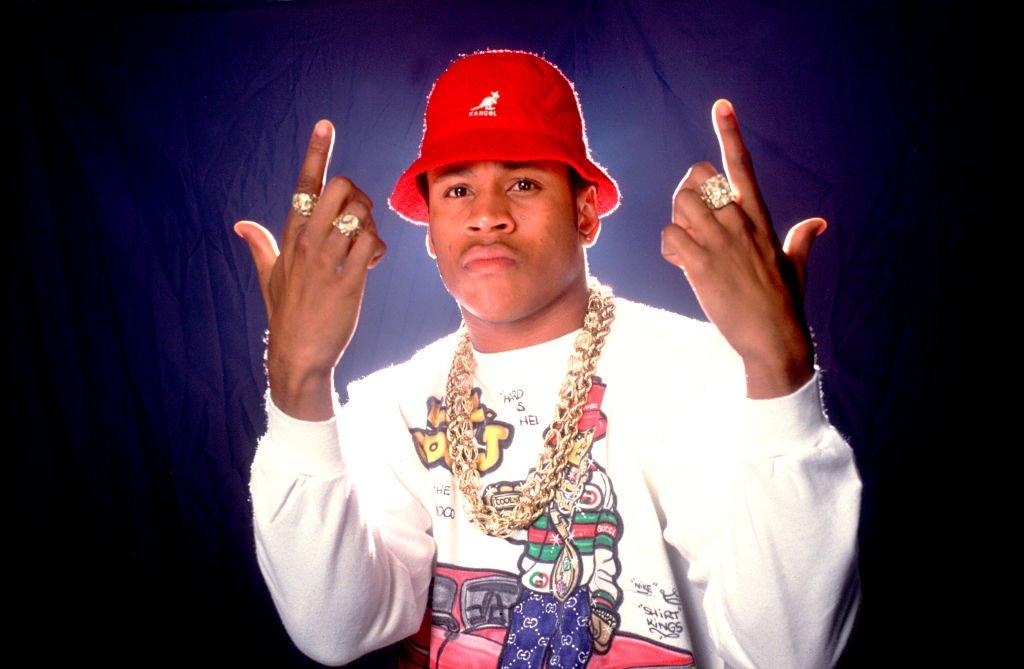
Credit: Paul Natkin/Getty Images
list
Celebrate 40 Years Of Def Jam With 15 Albums That Show Its Influence & Legacy
From the Beastie Boys' seminal 'License To Ill' and Jay-Z's 'Vol. 2… Hard Knock Life,' celebrate Def Jam with 15 of the label's essential albums.
This year marks the 40th anniversary of Def Jam Recordings, the New York label that made history in hip-hop, R&B, pop, and even thrash metal since its founding, and continues to do so today.
A label that began out of an NYU dorm room in 1984 quickly became an artistic (and business) powerhouse. Early acts like LL Cool J, the Beastie Boys, and Public Enemy were raw, adventurous, and risk-taking. Def Jam's roster opened new pathways in a still-young genre, seemingly every few months.
After that initial explosion, the label experienced a brief lull in the early 1990s when one label founder departed and the other expanded into fashion and comedy. Def Jam came roaring back beginning in 1994, and by 1998 the label was home to some of the most popular and influential artists in the game — including burgeoning megastars DMX and Jay-Z. To this day, Def Jam maintains a roster of both commercially successful and critically beloved artists in hip-hop, R&B, and pop.
To commemorate the anniversary of the label that gave us, well, pretty much everyone, here’s a list of 15 of Def Jam’s essential releases. While Def Jam brought audiences plenty of singles, EPs and remixes, this list primarily focuses on albums. Each project has a mix of artistic merit, popularity, influence and longevity, originality, and played a key role in the story of Def Jam as a whole. Think of it as a chronological run through the key albums that built one of the most lasting labels in modern music.
And finally: it must be said that in recent years, a dark shadow has begun to loom over Def Jam’s legacy. Label co-founder Russell Simmons been accused over the past seven years of numerous instances of sexual assault, dating back decades. In spite of these accusations, the label (in which Simmons hasn’t been involved for a quarter-century) remains on top, safeguarding its valuable archive while looking forward to another four decade run as fruitful as the first one.
T La Rock & Jazzy Jay - "It’s Yours" (1984)
The one single on this list is also the first piece of music ever released with the now-famous Def Jam logo. "It’s Yours" was a single produced by Def Jam co-founder Rick Rubin — his very first hip-hop production. Instrumentally, it was perhaps only comparable to Larry Smith and Def Jam co-founder Russell Simmons’ contemporaneous work with Run-D.M.C. Both "It’s Yours" and D.M.C.’s early work were severely stripped-down, consisting of a few drum sounds, an instrumental stab, and some scratches.
Lyrically, though, "It’s Yours" is worlds apart from "Sucker M.C.’s" — or pretty much anything else going on in hip-hop at the time. T La Rock, the brother of Treacherous Three member Special K, came from a family of educators, and he put every ounce of his erudition into the track. It begins, "Commentating, illustrating/ Description giving, adjective expert" and goes from there.
LL Cool J - 'Radio' (1985)
In the early 1980s, the state of the hip-hop album was very grim. Only a few existed, and they almost exclusively consisted of a few singles mixed with often-confusing filler. Two things changed that. First, Run-D.M.C.’s 1984 self-titled debut, which GRAMMY.com examined in depth a few months ago. Second was LL Cool J’s debut album Radio, the very first full-length album Def Jam ever released.
In many ways, Radio kicked off hip-hop’s Golden Age. The record shows LL, then still in his teens, as a versatile artist who can be boastful, funny, aggressive, lyrical. The album shows many different sides of his personality, and helped set the template for what a rap album could be.
Read more: 20 Iconic Hip-Hop Style Moments: From Run-D.M.C. To Runways
Beastie Boys - 'Licensed to Ill' (1986)
The Beasties would release more complex and enlightened albums than Licensed to Ill, and one of the members would eventually apologize for some of its lyrics. But there’s no denying that it was a smash hit. It was the first rap album to ever top the Billboard 200, got the group onstage with Madonna, and would eventually sell over 10 million copies.
Was some of that success due to their race? Sure. They were a credible group, signed to a hot rap label, at a time when it was still novel for white people to be performers in hip-hop. And yet, that’s not the whole story.
Licensed to Ill is a catchy, unique, energetic album, and the group members show undeniable chemistry. To this day, shout-filled, guitar-heavy anthems like "No Sleep till Brooklyn" and the ubiquitous "Fight for Your Right" can still get the party started.
Read more: The Beastie Boys Provide A License To Party
Public Enemy - 'It Takes a Nation of Millions to Hold Us Back' (1988)
There’s not too much you can say about this album that hasn’t already been said in the years of books, conferences, academic papers, and deluxe re-issues. It has ended up at or near the top of many all-time best lists. Its abrasive, collage-like approach to composition was never equalled (and, in light of current laws and practices around sampling, can never even be approached). The comic stylings of Flavor Flav bring just the right amount of levity to balance Chuck D’s takes on life-and-death issues.
Decades after its release, the album still sounds urgent. And sadly, in an America still roiled with tensions over race, incarceration, drugs, and the media, its concerns remain as relevant as ever.
Read more: 5 Things We Learned At "An Evening With Chuck D" At The GRAMMY Museum
Slick Rick - 'The Great Adventures of Slick Rick' (1988)
Slick Rick is the ultimate rap storyteller, and his debut album is the best example of his artistry. "I wrote them like an essay," Rick once said of creating the batch of songs that make up Great Adventures. He also compared it to doing stand-up. So you have exactly what those two reference points imply: stories that are well-constructed, and also frequently riotously funny.
Rick is the master of the telling detail (remember "Dave, the dope fiend shooting dope/ Who don’t know the meaning of water nor soap" from "Children’s Story"?), the humorous twist, the morality tale, the bedtime story, the character voice. His influence lives on in perhaps his most devoted protege, Ghostface Killah, as well as in any rapper who has tried to craft a song with a beginning, middle, and end.
Learn more: Essential Hip-Hop Releases From The 1980s: Slick Rick, RUN-D.M.C., De La Soul & More
Warren G - 'Regulate… G Funk Era'(1994)
A bit of an edge case here, as technically the record was put out by Violator Records and Rush Associated Labels, the latter of which was a sort of umbrella organization Def Jam ran in the mid-1990s. Many albums that could have made this list, including projects by Redman, Onyx, Domino, and Nice & Smooth, were released under the RAL banner. But Warren G’s debut, a giant hit in an era where Def Jam really needed it, became inextricably associated with the label, to the point where an article about the album on Universal Music’s website mentions Def Jam five times in the first two paragraphs.
Regulate is a pop-savvy take on the G-funk sound that was then ascendant. It was a huge success in a year that saw the introduction of tons of amazing rappers into the game. And Warren G being associated with Def Jam meant that the East Coast-centric label had expanded its geographic footprint.
Foxy Brown - 'Ill Na Na' (1996)
Def Jam wasn’t always a friendly place for female artists (despite many of the most important employees being women, including one-time president Nana Ashhurst). In fact, the label didn’t release a rap album by a woman until Nikki D’s Daddy’s Little Girl in 1991. So Foxy Brown’s impact — on Def Jam and on the rap world as a whole — cannot be overstated. Ill Na Na was an album that changed everything for female rappers. It had songs for the clubs, the block, and the radio. Foxy’s sexuality, versatility, and first-class rhyming would have an influence on countless rappers, most famously her number one fan Nicki Minaj, who has been effusively praising Foxy for more than a decade.
Read more: Ladies First: 10 Essential Albums By Female Rappers
DMX - 'It’s Dark and Hell Is Hot' (1998)
No less an authority than Nas referred to 1998 as "The year DMX took over the world." It’s Dark and Hell Is Hot is how he did it. The album set fire to Bad Boy’s so-called "shiny suit era" by embodying its polar opposite: a dark, grimy vision full of gothic synths; raspy, full-throated lyrics; and, sometimes, actual barks. Without DMX, there’s no NYC street rap return: no G-Unit mixtape run, no Diplomats.
The record is consistent and captivating from start to finish, and its thematic centerpiece comes, appropriately, about halfway through with "Damien," which reminds all of us that the most difficult battles we fight are the ones with ourselves.
Jay-Z - 'Vol. 2… Hard Knock Life' (1998)
Jay-Z has made more critically beloved albums than Vol. 2 (Reasonable Doubt and The Blueprint both fall in that category). He has made albums with bigger hits (The Blueprint 3 had a No. 1 hit with "Empire State of Mind"). But he has never made a more important LP.
Vol. 2 was the album that made Jay a superstar. Its Annie-sampling title track (produced by the late 45 King) sent him to the stratosphere — a process he actually documented on his follow-up album. But the record wasn’t just a commercial novelty. It showed Jay at the absolute top of his game: cocky, funny, and brilliant. Case in point: his novel approach to storytelling in "Coming of Age (Da Sequel)," where all the important action takes place in just a few seconds, inside the characters’ heads.
Read more: Songbook: How Jay-Z Created The 'Blueprint' For Rap's Greatest Of All Time
Ludacris - 'Word of Mouf' (2001)
Around the turn of the millennium, Def Jam had its sights set on conquering new territory. Specifically, the South. So they set up Def Jam South and hired Scarface to head it up. The entity’s biggest success came from an Atlanta DJ who went by Chris Luva Luva on the air, but began rapping as Ludacris.
Word of Mouf was Luda’s second album, but it was the one that really cemented his stardom with songs like "Rollout (My Business)," "Area Codes," and the immortal "Move Bitch" (the last of which has had an artist-approved second life as a protest chant). The album proved that the South was here to stay, and that Def Jam would have a role in determining its hip-hop future.
Learn more: A Guide To Southern Hip-Hop: Definitive Releases, Artists & Subgenres From The Dirty South
Scarface - 'The Fix' (2002)
Speaking of Scarface and Def Jam South, Face had no intention of dropping music while running the label. But, in his telling, Def Jam exec Lyor Cohen insisted on it, paying handsomely for the privilege.
"There were so many things working in my favor on that album," Scarface wrote in his memoir Diary of a Madman. "For the first time, I was working on an album for a label that believed in me 100 percent and didn’t want anything from me except for me to make the dopest album I could possibly make. And they went out of their way to make that possible."
Def Jam’s history of putting out classics inspired Face on The Fix, he writes in that book. And in the end, the album stands up there with any of them. It is one of only a small handful of rap records to earn a perfect five-mic rating from The Source, and it belongs in that rarified air with projects like Illmatic and Aquemini.
Kanye West - 'The College Dropout' (2004)
Yes, today Kanye West is the worst: a Hitler-loving, Trump-supporting, paranoid, antichoice, antisemite who stands accused of sexual harrassment. But two decades ago, the world met a Mr. West who at least seemed very different.
The College Dropout presented an artist who was already extremely well-known as a beatmaker. But Kanye’s carefully crafted persona as the bridge between mainstream rap and the underground — "First n— with a Benz and a backpack," as he put it — meant that he appealed to pretty much everyone. The College Dropout wasn't West at the top of his rap game, but it did show his skill at developing song concepts, at beats, and at creating an artistic vision so powerful, and so relatable, that it captivated an entire generation.
Cam’ron - 'Purple Haze' (2004)
It’s impossible to talk about Def Jam without discussing Roc-A-Fella. Jay-Z’s label hooked up with Def Jam in 1997, and had a years-long hot streak with artists like Kanye, Beanie Sigel, Freeway, the Young Gunz, and of course Cam’ron’s Diplomats crew — Cam, Juelz Santana, and the overall group all released projects there.
Purple Haze came at the very tail end of Roc-a-fella’s golden age. It has Cam at the absolute peak of his absurdist rhyming powers, keeping computers ‘puting and knocking out eight-syllable multis about Paris Hilton like it was nothing. During the Purple Haze era, it was Cam’s world, and we were all just lucky to be living in it.
Rihanna - 'Good Girl Gone Bad' (2007)
Rihanna’s first two projects were full of Caribbean sounds and ballads. But when her third album came along, she needed a change. Riri wanted to go "uptempo," and history shows that was the right choice. Good Girl Gone Bad began the singer’s transformation into the megastar we know today. It spawned five singles and two separate quickie tie-in albums (Good Girl Gone Bad: Reloaded and Good Girl Gone Bad: The Remixes).
"Umbrella" was the way forward. Rihanna had a No. 1 record prior, but she’d never made a sensation like this. The song (with a guest verse by then-Def Jam president Jay-Z) not only made it to the top slot, it also won a GRAMMY and was undeniably the song of the summer. The album also contained the sensation "Don’t Stop the Music," a track that kickstarted the EDM/pop hybrid that dominated the late aughts. Without Good Girl Gone Bad, it’s safe to say we’d be living in a very different, Fenty-less world.
Frank Ocean - 'Channel Orange' (2012)
One could fill a whole blurb about Channel Orange simply by quoting the extreme praise it received. "A singular achievement in popular culture." "Landed with the crash and curiousness of a meteor." Two days after its release, Pitchfork was already saying that it "feels like a classic."
And yet, somehow even that kind of acclaim doesn’t do the album justice. You really had to be there when it came out, when Frank looked into his soul and, in doing so, connected deeply with so many listeners
Read more: Frank Ocean Essentials: 10 Songs That Embody The Elusive Icon's R&B Genius
"Channel Orange is the most concentrated version of 2012 in 2012 so far," wrote Sasha Frere-Jones at the time, in one of the most dead-on statements about the album. It expressed the contradictions we all lived in. Its fragmentation mirrored the social media that was beginning to take over all of our lives. Ocean left bits of his biography scattered throughout the album, but they almost didn’t matter. He was speaking for all of us, in the way only great artists can.
A Guide To New York Hip-Hop: Unpacking The Sound Of Rap's Birthplace From The Bronx To Staten Island
PRIDE & Black Music Month: Celebrating LGBTQIA+ & Black Voices
Listen To GRAMMY.com's 2024 Pride Month Playlist Of Rising LGBTQIA+ Artists
9 New Pride Anthems For 2024: Sabrina Carpenter's "Espresso," Chappell Roan's "Casual" & More
What's The Future For Black Artists In Country Music? Breland, Reyna Roberts & More Sound Off
Why Beyoncé Is One Of The Most Influential Women In Music History | Run The World
9 Ways To Support Black Musicians & Creators Year-Round
How Beyoncé Is Honoring Black Music History With 'Cowboy Carter,' "Texas Hold Em," 'Renaissance' & More
The Evolution Of The Queer Anthem: From Judy Garland To Lady Gaga & Lil Nas X
15 LGBTQIA+ Artists Performing At 2024 Summer Festivals
50 Artists Who Changed Rap: Jay-Z, The Notorious B.I.G., Dr. Dre, Nicki Minaj, Kendrick Lamar, Eminem & More
Fight The Power: 11 Powerful Protest Songs Advocating For Racial Justice

How Rihanna Uses Her Superstardom To Champion Diversity | Black Sounds Beautiful

How Beyoncé Has Empowered The Black Community Across Her Music And Art | Black Sounds Beautiful
5 Women Essential To Rap: Cardi B, Lil' Kim, MC Lyte, Sylvia Robinson & Tierra Whack
Celebrate 40 Years Of Def Jam With 15 Albums That Show Its Influence & Legacy

Watch Frank Ocean Win Best Urban Contemporary Album At The 2013 GRAMMYs | GRAMMY Rewind
A Brief History Of Black Country Music: 11 Important Tracks From DeFord Bailey, Kane Brown & More
10 Women In African Hip-Hop You Should Know: SGaWD, Nadai Nakai, Sho Madjozi & More
10 Artists Shaping Contemporary Reggae: Samory I, Lila Iké, Iotosh & Others
The Rise Of The Queer Pop Star In The 2010s
How Sam Smith's 'In The Lonely Hour' Became An LGBTQIA+ Trailblazer
How Queer Country Artists Are Creating Space For Inclusive Stories In The Genre

How Jay-Z Became The Blueprint For Hip-Hop Success | Black Sounds Beautiful

How Kendrick Lamar Became A Rap Icon | Black Sounds Beautiful
Dyana Williams On Why Black Music Month Is Not Just A Celebration, But A Call For Respect
6 LGBTQIA+ Latinx Artists You Need To Know: María Becerra, Blue Rojo & More
7 LGBTQ+ Connections In The Beatles' Story
Breaking Down Normani's Journey To 'Dopamine': How Her Debut Album Showcases Resilience & Star Power
10 Alté Artists To Know: Odunsi (The Engine), TeeZee, Lady Donli & More

Celebrating Black Fashion At The GRAMMYs Throughout The Decades | Black Music Month
FLETCHER Is "F—ing Unhinged" & Proud Of It On 'In Search Of The Antidote'
For Laura Jane Grace, Record Cycles Can Be A 'Hole In My Head' — And She's OK With That
15 Essential Afrorock Songs: From The Funkees To Mdou Moctar
50 Years In, "The Wiz" Remains An Inspiration: How A New Recording Repaves The Yellow Brick Road
Why Macklemore & Ryan Lewis' "Same Love" Was One Of The 2010s' Most Important LGBTQ+ Anthems — And How It's Still Impactful 10 Years On
Songbook: The Complete Guide To The Albums, Visuals & Performances That Made Beyoncé A Cultural Force

Why Cardi B Is A Beacon Of Black Excellence | Black Sounds Beautiful
Queer Christian Artists Keep The Faith: How LGBTQ+ Musicians Are Redefining Praise Music
9 Revolutionary Rap Albums To Know: From Kendrick Lamar, Black Star, EarthGang & More
9 "RuPaul's Drag Race" Queens With Musical Second Acts: From Shea Couleé To Trixie Mattel & Willam
5 Black Artists Rewriting Country Music: Mickey Guyton, Kane Brown, Jimmie Allen, Brittney Spencer & Willie Jones
How 1994 Changed The Game For Hip-Hop

How Whitney Houston’s Groundbreaking Legacy Has Endured | Black Sounds Beautiful
LGBTQIA+-Owned Venues To Support Now

Celebrate The Genius Of Prince | Black Sounds Beautiful

Explore The Colorful, Inclusive World Of Sylvester's 'Step II' | For The Record
Black-Owned Music Venues To Support Now
5 Artists Fighting For Social Justice Today: Megan Thee Stallion, Noname, H.E.R., Jay-Z & Alicia Keys
Artists Who Define Afrofuturism In Music: Sun Ra, Flying Lotus, Janelle Monae, Shabaka Hutchings & More
5 Trans & Nonbinary Artists Reshaping Electronic Music: RUI HO, Kìzis, Octo Octa, Tygapaw & Ariel Zetina
From 'Shaft' To 'Waiting To Exhale': 5 Essential Black Film Soundtracks & Their Impact
5 Emerging Artists Pushing Electronic Music Forward: Moore Kismet, TSHA, Doechii & Others
5 Artists Essential to Contemporary Soca: Machel Montano, Patrice Roberts, Voice, Skinny Fabulous, Kes The Band

How Quincy Jones' Record-Setting, Multi-Faceted Career Shaped Black Music On A Global Scale | Black Sounds Beautiful
5 Black Composers Who Transformed Classical Music
Brooke Eden On Advancing LGBTQ+ Visibility In Country Music & Why She's "Got No Choice" But To Be Herself
Let Me Play The Answers: 8 Jazz Artists Honoring Black Geniuses
Women And Gender-Expansive Jazz Musicians Face Constant Indignities. This Mentorship Organization Is Tackling The Problem From All Angles.

Histories: From The Yard To The GRAMMYs, How HBCUs Have Impacted Music
How HBCU Marching Band Aristocrat Of Bands Made History At The 2023 GRAMMYs
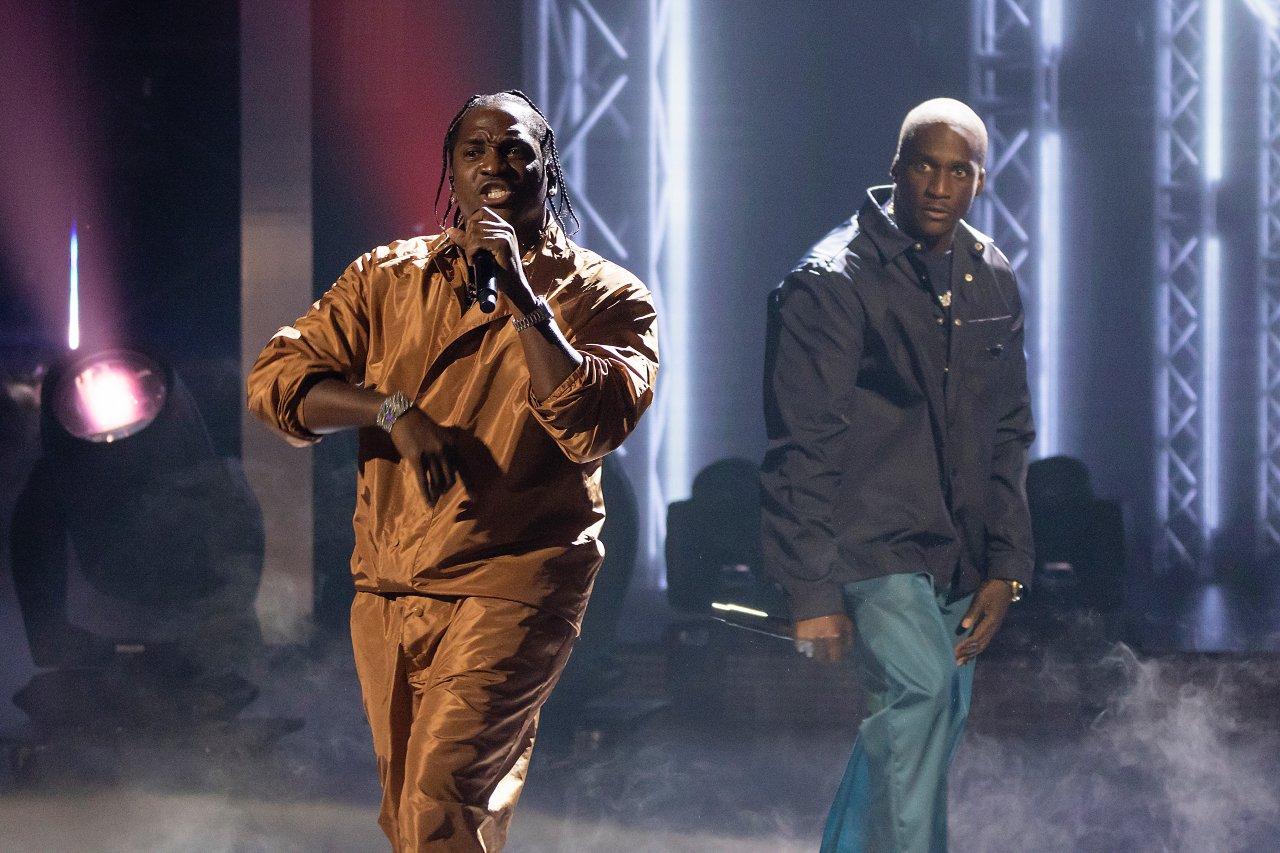
Photo: Terence Rushin/Getty Images
news
Everything We Know About Clipse's First Album In 15 Years: Pusha T And Malice Rise Again
While there's no title or release date for the new Clipse album, brothers Pusha T and Malice have teased the essence of the project, including a preview of their first new song, "Birds Don’t Sing," since 2009.
Legendary Virginia Beach rap duo Clipse have mostly been on ice since 2009's Til the Casket Drops — and that decade and a half off ends now.
The duo, composed of brothers and rap phenoms Pusha T and Malice, is back with a new, John-Legend-featuring song, "Birds Don't Sing," from a reunion project whose title has yet to be disclosed. Listen to a preview of the new song, their first new track as the Clipse since 2009, below.
It's bracing to hear purveyors of witty, sneakily profound coke raps get real about the deaths of their parents: "Lost in emotion, mama's youngest / Tryna navigate life without my compass," King Push raps at the outset. "Some experience death and feel numbness / But not me, I felt it all and couldn't function.”
It only gets realer from there: "You told me that you loved me, it was all in your tone / 'I love my two sons' was the code to your phone," Malice raps in his verse. If "Birds Don't Sing" is any indication, Clipse's first album in forever will be illuminating indeed.
We don't know much about the "Grindin'" hitmakers' reunion album, other than what Pusha T and Malice revealed in a wide-ranging Vulture interview. But for hip-hop fans, the breadcrumbs they dropped are enticing indeed.
It Will Reflect The Clipse's Maturation
Pusha T is vocal about hating the Pharrell-produced Til The Casket Drops, which has always left their story hanging. They seem to be all in on this LP — one that's designed on their own terms.
"I think the album shows the supreme maturation of a rap duo," said Push. "I think this is where you get the difference between taste and filler. This music is curated. This is a high taste-level piece of work.
"You can only have that level of taste when you have the fundamentals down to a science," he continued. "I think it's been definitely missing. Then there's the competitive aspect." Added Malice: "This is smart basketball. It's fundamentals."
Read more: For The Record: How Clipse's Lord Willin' Established Virginia's Foothold In Rap
Pharrell Williams Produced The Entire Album
Despite Pusha T's reservations about Til The Casket Drops, Pharrell Williams has been an integral part of the Clipse's operation since the beginning — and he returns to produce the new project.
"Pharrell producing everything is also an ode to the type of music and the type of albums we want to make," he added. "We still want to make full bodies of work. These are movies, man. These aren't just songs. This isn't just a collection of joints we went in and banged out."
Maturation Doesn't Mean Abandoning Coke Raps
As Pusha T points out in the interview — yes, they rap about selling coke, but to reduce it to that is to miss the point entirely.
"There's no way that you can listen to that level of storytelling and experience and just walk away just saying 'That's coke rap.'" Malice says. "If you just want to say that it's just crack rap, then you can't even assess what's really being said or what's going on."
Indeed, what the Clipse staked their claim on isn't off the table. In fact, it's lined up and ready.
Get Ready For A Bona Fide Clipse Era
As Pusha T stresses, this Clipse revisitation will come from multiple directions: "Appearances, touring, and a rap album of the year" are coming down the pike.
As more information about the forthcoming Clipse album flows in, keep GRAMMY.com bookmarked so you know the details — as these fraternal MCs join forces once more.
Latest Rap News & Music

5 Rising L.A. Rappers To Know: Jayson Cash, 310babii & More
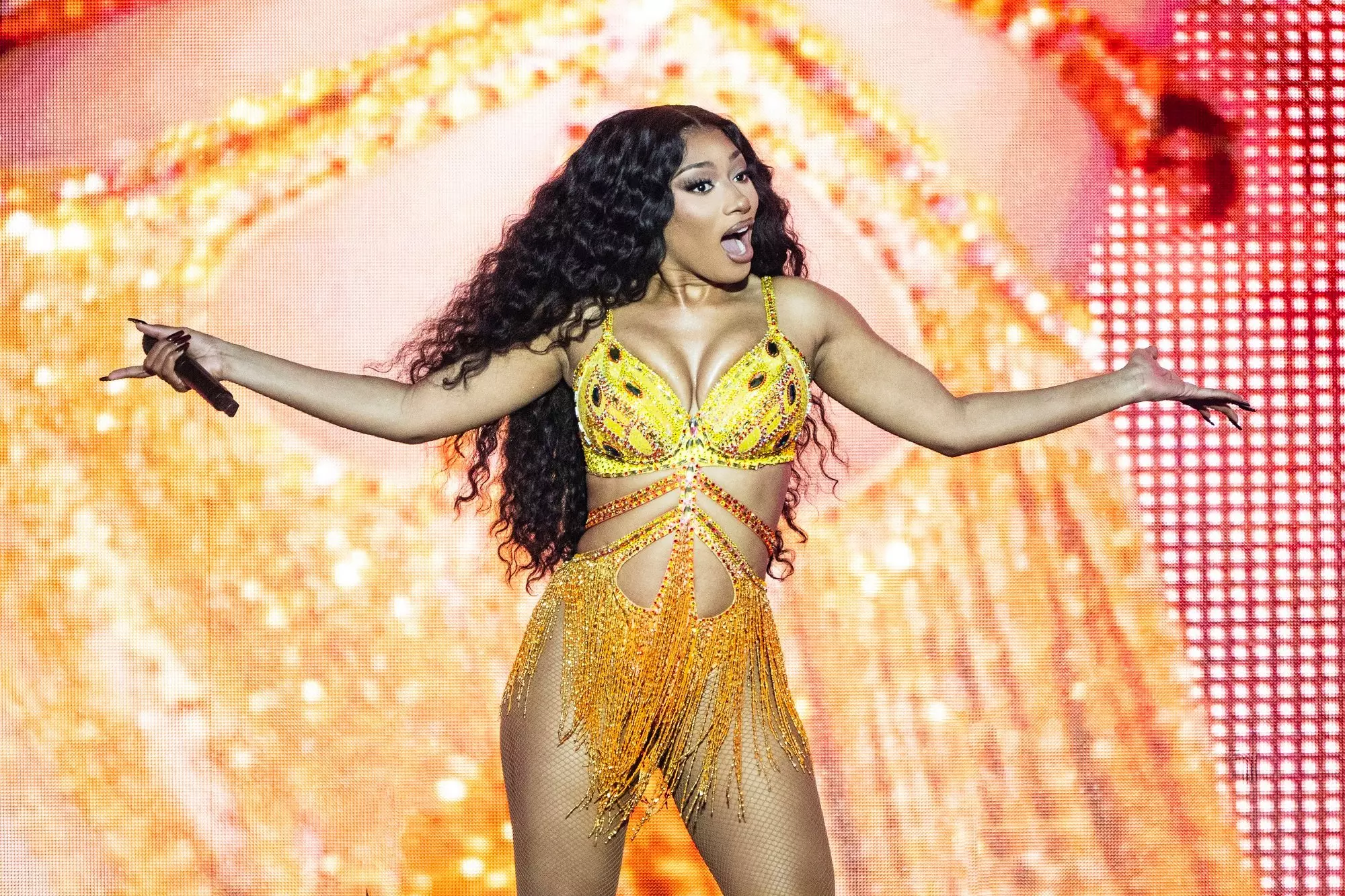
6 Takeaways From Megan Thee Stallion's 'Megan': Snakes, Shots & Self-Assurance

Celebrate 40 Years Of Def Jam With 15 Albums That Show Its Influence & Legacy
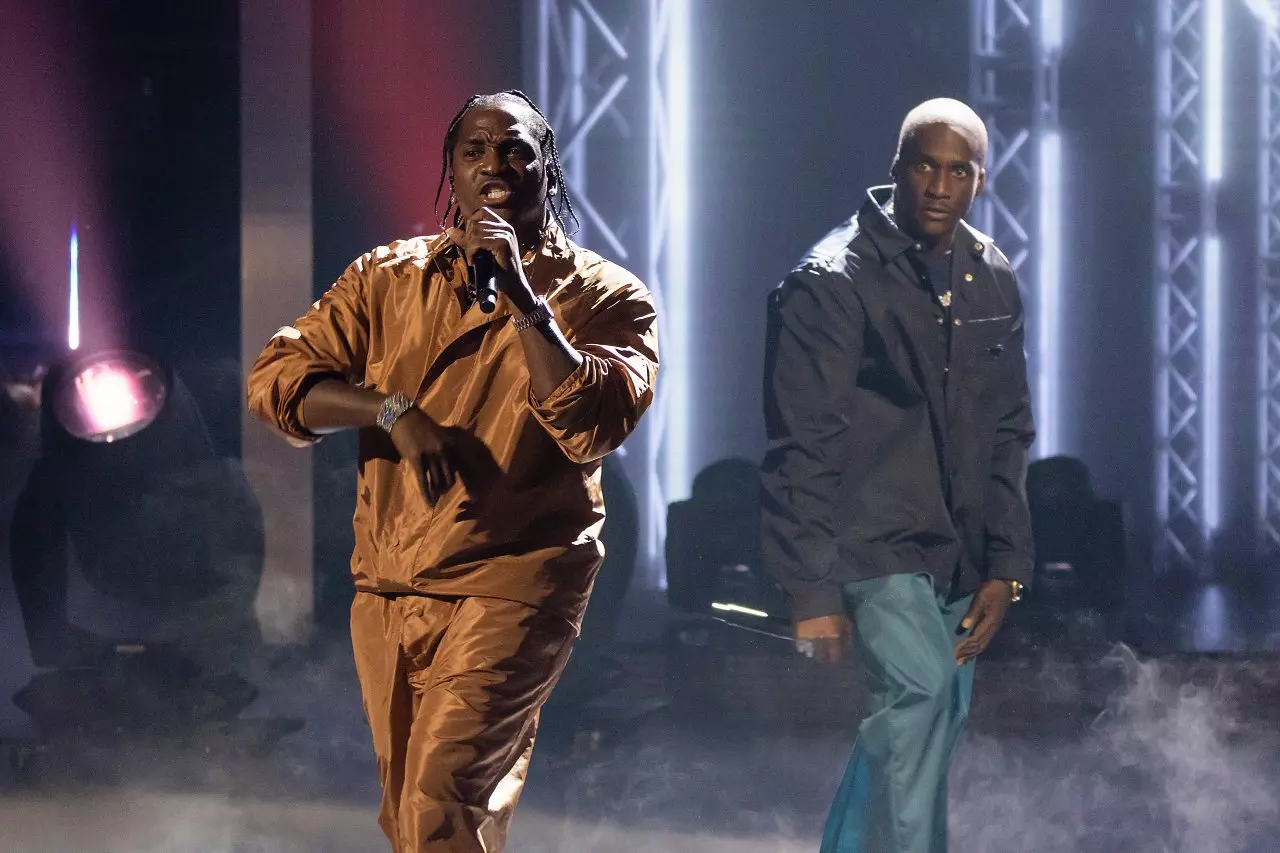
Everything We Know About Clipse's First Album In 15 Years: Pusha T And Malice Rise Again
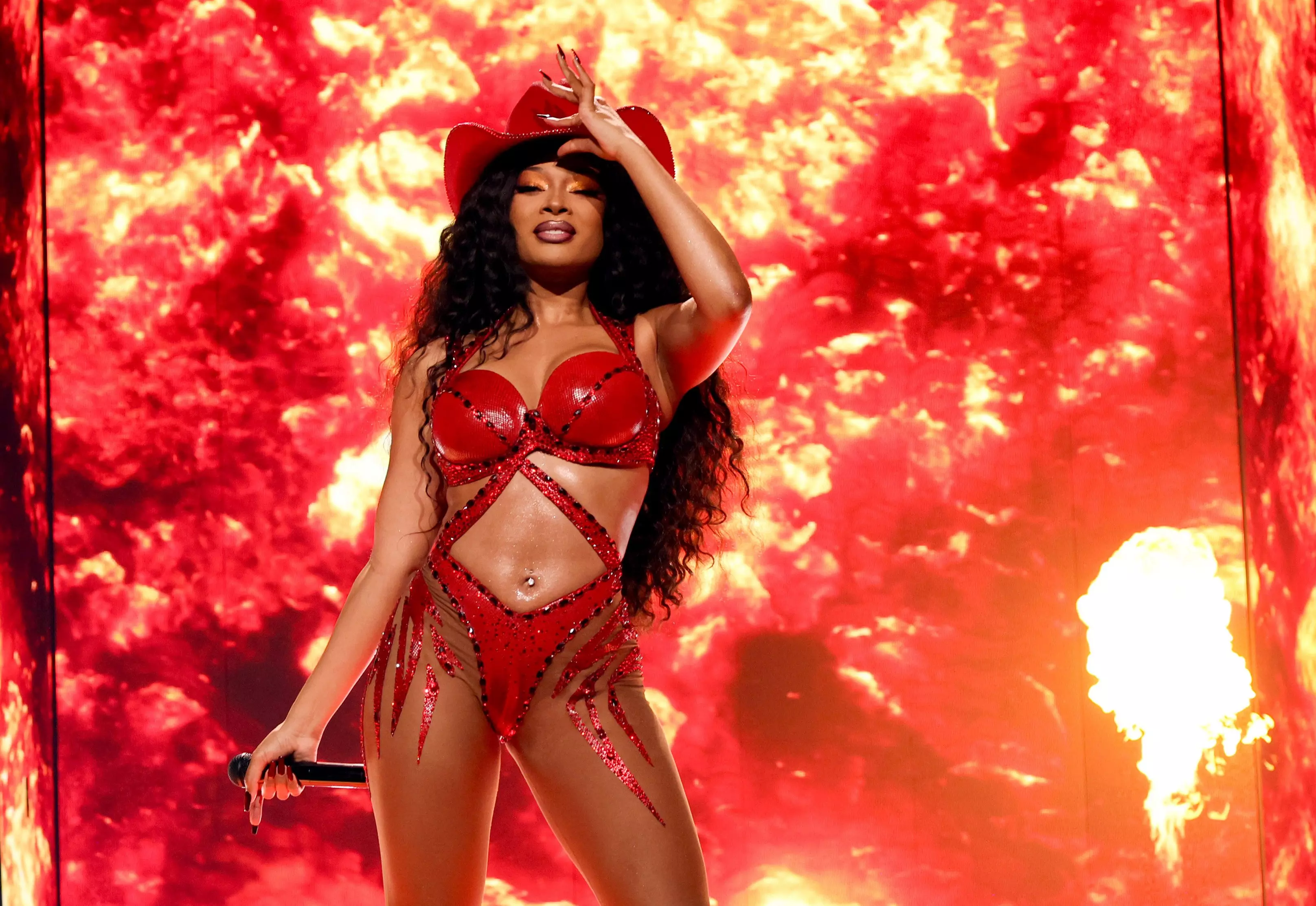
5 Iconic Moments From Megan Thee Stallion's Houston Hometown Shows
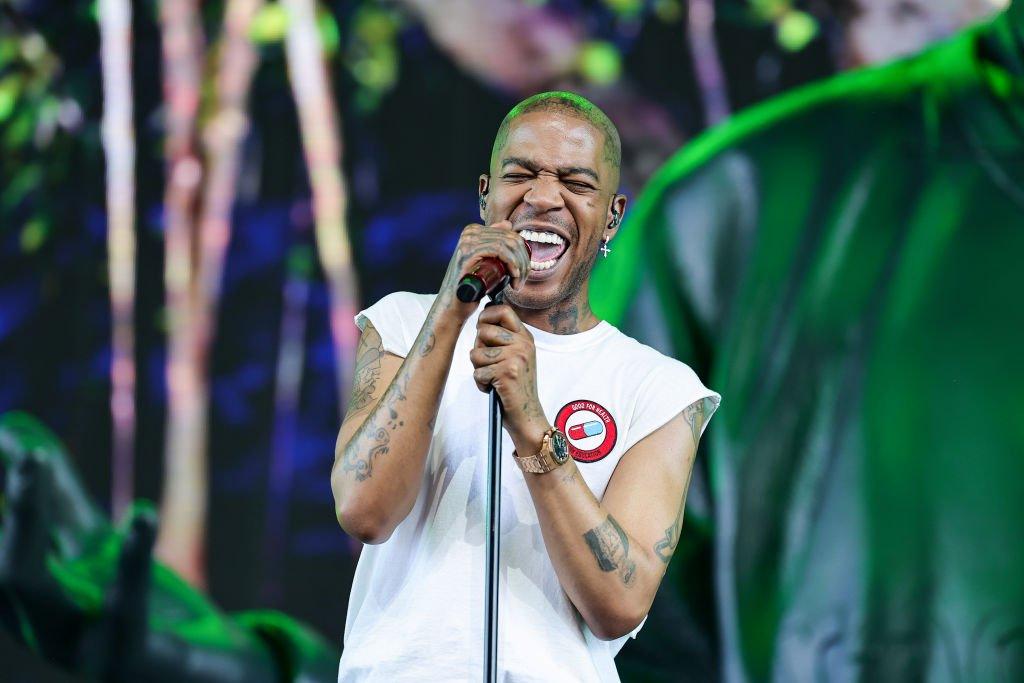
Photo: Theo Wargo/Getty Images for Coachella
list
10 Times Hip-Hop Has Given A Voice To Mental Health: Eminem, J. Cole, Logic & More Speak Out
From the message of "The Message" to Joe Budden's vulnerable podcast and Jay-Z speaking about the importance of therapy, read on for moments in the history of hip-hop where mental health was at the forefront.
In a world of braggadocio lyrics, where weakness is often looked down upon, hip-hop can often seem far from a safe place to discuss mental health.
But underneath its rugged exterior, hip-hop culture and its artists have long been proponents of well-being and discussing the importance of taking care of one's mental health. Openness about these topics has grown in recent years, including a 2022 panel discussion around hip-hop and mental health, co-hosted by the GRAMMY Museum, the Recording Academy's Black Music Collective, and MusicCares in partnership with the Universal Hip-Hop Museum.
"Artists are in a fight-or-flight mode when it comes to being in this game," said Eric Brooks, former VP of Marketing & Promotions at Priority Records who worked with NWA and Dr. Dre. "And there need to be strategies on how to deal with the inner battles that only happen in the mind and body."
The panel only scratched the surface of the many times hip-hop culture has illuminated critical mental health issues that often remain hidden or under-discussed in the music industry. In recognition of Mental Health Awareness Month, read on for 10 times hip-hop has shone a light on mental health.
J. Cole Apologized To Kendrick Lamar
A long-simmering beef between Drake and Kendrick Lamar was reignited in March 2024 when Metro Boomin' and Future released "Like That." The track featured a scathing verse from Kendrick, where he took aim at Drake and J. Cole, and referenced the pair's collaborative song "First Person Shooter."
The single begged for a response, and J. Cole, under what was presumably a significant amount of pressure, surprise-released his Might Delete Later. The album featured "7 Minute Drill," in which Cole calls Kendrick's To Pimp, A Butterfly boring.
But the same week Cole's album came out, he apologized to Kendrick onstage at his Dreamville Fest, saying it didn't sit right with his spirit and that he "felt terrible" since it was released. Cole added that the song didn’t sit right with him spiritually and he was unable to sleep. Cole subsequently removed "7 Minute Drill" from streaming services.
Strong debate followed about whether or not Cole should have removed the song. However, many heralded Cole’s maturity in the decision and said it was an important example of not doing things that don’t align with one's true emotions, and avoiding allowing others expectations of you weight down your own physical and mental health.
SiR Spoke Candidly About Depression & Sobriety
Although an R&B artist, TDE singer SiR is hip-hop adjacent, having collaborated with former labelmate Kendrick Lamar on tracks like "D'Evils" and "Hair Down." SiR recently spoke with GRAMMY.com about the troubles that followed him after the release of his 2019 album Chasing Summer.
"I was a full-blown addict, and it started from a string of depression [and] relationship issues and issues at home that I wasn't dealing with," SiR says. After the Los Angeles-based singer had hit rock bottom, he found the spark he needed to do something about it. His initial rehab stint was the first step on the road to change.
"I was there for 21 days [in 2021]. [The] second time, I was there for two months and the third time wasn't technically rehab…I did personal therapy, and, man, [that] did wonders," he recalls.
SiR also tackled the stigma many Black communities place on therapy and seeking help for mental health issues. "I would've never done something like that if I was in any other position, so I'm thankful for my issues because they led me to a lot of self-reflection and forgiveness," SiR says.
Big Sean Educated His Audience About Anxiety & Depression
One of the biggest challenges in addressing anxiety and depression is the feeling that those issues must be kept under wraps. In 2021, Big Sean and his mother released a series of videos in conjunction with Mental Health Awareness Month, in which the GRAMMY nominee opened up about his battles with depression and anxiety.
In one of those videos, Sean and his mother discussed the importance of sleep and circadian rhythms when managing depression and mental health issues. In an industry that prioritizes the grind, the hip-hop community often overlooks sleep — much to its detriment.
"Sleep is the most overlooked, disrespected aspect of our well-being," said Myra Anderson, Executive Director & President of the Sean Anderson Foundation and Big Sean's mother. "Even one day without good sleep can mess up your hormones severely."
As a busy recording artist, Sean concurs that, for him, a lack of sleep contributes to challenges with anxiety. “If I’m not in the right mindset, I don’t get the right sleep,” says Sean in the mental health video series. “Then that anxiety rides high, and my thoughts are racing. I’m somebody that lives in my head.”
G.Herbo's "PTSD" Addressed The Impact Of Street Violence
Eastside Chicago's G. Herbo is an artist vital to the city's drill music scene. On "PTSD," the title track of his 2020 album, Herbo raps about his struggles coping with violence and loss.
"I can't sleep 'cause it's a war zone in my head / My killers good, they know I'm hands-on with the bread / A million dollars ahead, I'm still angry and seeing red / How the f*ck I'm 'posed to have fun? All my n— dead."
The lyrics echoed the realities of what G. Herbo grew up seeing in O-Block, considered by many to be one of the most dangerous neighborhoods in Chicago. But it wasn't just a song title; G. Herbo was diagnosed with PTSD in 2019 and began therapy to manage it, showing that even rap's most hardened have opened themselves up to professional help.
"I'm so glad that I did go to therapy," G. Herbo told GRAMMY.com in July 2020. "I'm glad that I did take that leap of faith to just go talk to somebody about my situation and just my thoughts and get 'em to a person with an unbiased opinion."
Joe Budden Opens Up About His Darkest Times
In 2017, on the "Grass Routes Podcast," rapper-turned-podcaster Joe Budden opened up about multiple suicide attempts and his lifelong battle with depression.
"For me, there have been times where I've actually attempted suicide," Budden shared. "As open as I've been when it comes to mental health, it wasn't until retirement from rapping that I was able to dive into some of the things the fans have seen."
Never one to shy away from rapping about his mental health struggles, Budden songs like "Whatever It Takes" peel back the layers on an artist fighting his demons: "See, I'm depressed lately, but nobody understands / That I'm depressed lately, I'm sorta feelin repressed lately."
Budden continued to be a champion for mental health that year, including on his former Complex show "Everyday Struggle," where Budden broke down while discussing the suicide death of fellow rapper Styles P's daughter.
In recent years, Budden has uses his wildly popular "The Joe Budden Podcast" as a tool to discuss his own struggles and raise awareness of mental health issues.
Grandmaster Flash & The Furious Five Broadcast A Serious "Message"
Hip-hop culture has long used rap as a tool to highlight mental health and the everyday struggles of its community. Released in 1982, Grandmaster Flash and The Furious Five's "The Message" is an early, effective example of vulnerability in hip-hop.
"The Message" described the mental health impacts of poverty and inner-city struggle, describing desperate feelings and calling for support in underserved communities: "I can't take the smell, can't take the noise / Got no money to move out, I guess I got no choice." Perhaps the most recognizable lyric comes from Melle Mel, who raps, "Don't push me cause I'm close to the edge/I'm trying not to lose my head."
Eminem Got Honest About Depression While In Rehab
On "Reaching Out," Queen and Paul Rodgers sing "Lately I've been hard to reach / I've been too long on my own / everybody has a private world where they can be alone." These lyrics were sampled on the intro to Eminem's 2009 single "Beautiful," a raw tale of the rapper's struggles with depression. Half of the song was written while Eminem was in rehab, including lyrics like "I'm just so f—king depressed/I just can't seem to get out this slump."
The lyrics pierced the core of Eminem's audience, who were able to see the parallels between the struggles of a rap superstar and their own issues. The song reached the Top 20 of the Billboard Hot 100 and was nominated for a Best Rap Solo Performance GRAMMY Award. In an interview with MTV about the song, Eminem said it was an important outlet for him at a challenging time.
But it was far from the first time Eminem has discussed mental health. One of the earliest examples was in his song "Stan," where Eminem rapped from the perspective of an obsessed fan who ended up killing himself and his wife after Eminem failed to respond to his fan mail. In a 2000 interview, Eminem told MTV that he wrote the song to warn fans not to take his lyrics literally.
Logic Sparked Change With A Number
One of the most impactful moments hip-hop has seen regarding mental health and sparking change was when Logic released his song "1-800-273-8255" in 2017. The record, named after the real National Suicide Lifeline Prevention phone number, which is now 988, hit the top three on the US Billboard Hot 100.
Following the song's release, the British Medical Journal released a study sharing data that showed the song contributed to a 27 percent increase in calls to the prevention hotline that year and may have even contributed to an actual reduction in deaths by suicide.
Logic's single further proved that rap music's impact extends well beyond charts and sales. "1-800-273-8255" highlighted the connection artists have with their fans, as well as the ways music can be a tool to cope with challenges like mental health and suicidal thoughts.
Kid Cudi Opened Up About Suicidal Urges
Cleveland's own Kid Cudi has never shied away from putting his emotions on record, rapping vividly throughout his career about his struggles with mental health. Cudi records, like the hit single "Pursuit of Happiness," are brutally honest about trying to find happiness in a world filled with trials and tribulations.
In a 2022 interview with Esquire, Cudi recalled checking himself into rehab in 2016 for depression and suicidal urges. He had been using drugs to manage the weight of his stardom and even suffered a stroke while in rehab. "Everything was f—ed," Cudi said.
Cudi took a break to develop stability, returning to the spotlight with the 2018 project Kids See Ghosts in collaboration with Kanye West.. Today, Cudi and his music remain pillars of strength for those facing similar challenges.
Jay-Z Detailed The Importance Of Therapy & Getting Out Of "Survival Mode"
In 2017, Jay-Z released his critically acclaimed thirteenth studio album. 4:44 was packed with lessons on family, mental health, and personal growth.
An interview with the New York Times, Jay-Z discussed how helpful therapy had been to him. Therapy helped the rap superstar in his interactions with other people — something that had been hardened growing up as a black man in Marcy Projects. "I grew so much from the experience," he told the Times.
"I think the most important thing I got is that everything is connected. Every emotion is connected, and it comes from somewhere. I understand that, instead of reacting to that with anger, I can provide a softer landing and maybe, 'Aw, man, is you O.K.? You're in this space where you're hurting, and you think I see you, so you don't want me to look at you. And you don't want me to see you,'" he said. "You don't want me to see your pain."
The album also unpacked Jay-Z's infidelity. "I'll f— up a good thing if you let me," he raps on "Family Feud." In the same interview, Jay-Z shared that growing up in the hood put him into "survival mode," impacting his abilities to be a good partner and husband earlier in life.
"You shut down all emotions. So even with women, you gonna shut down emotionally, so you can't connect," he reflected. "In my case, like it's, it's deep. And then all the things happen from there: infidelity."
"I Made My ADHD Into My Strength": Understanding The Link Between Rap & Neurodivergence
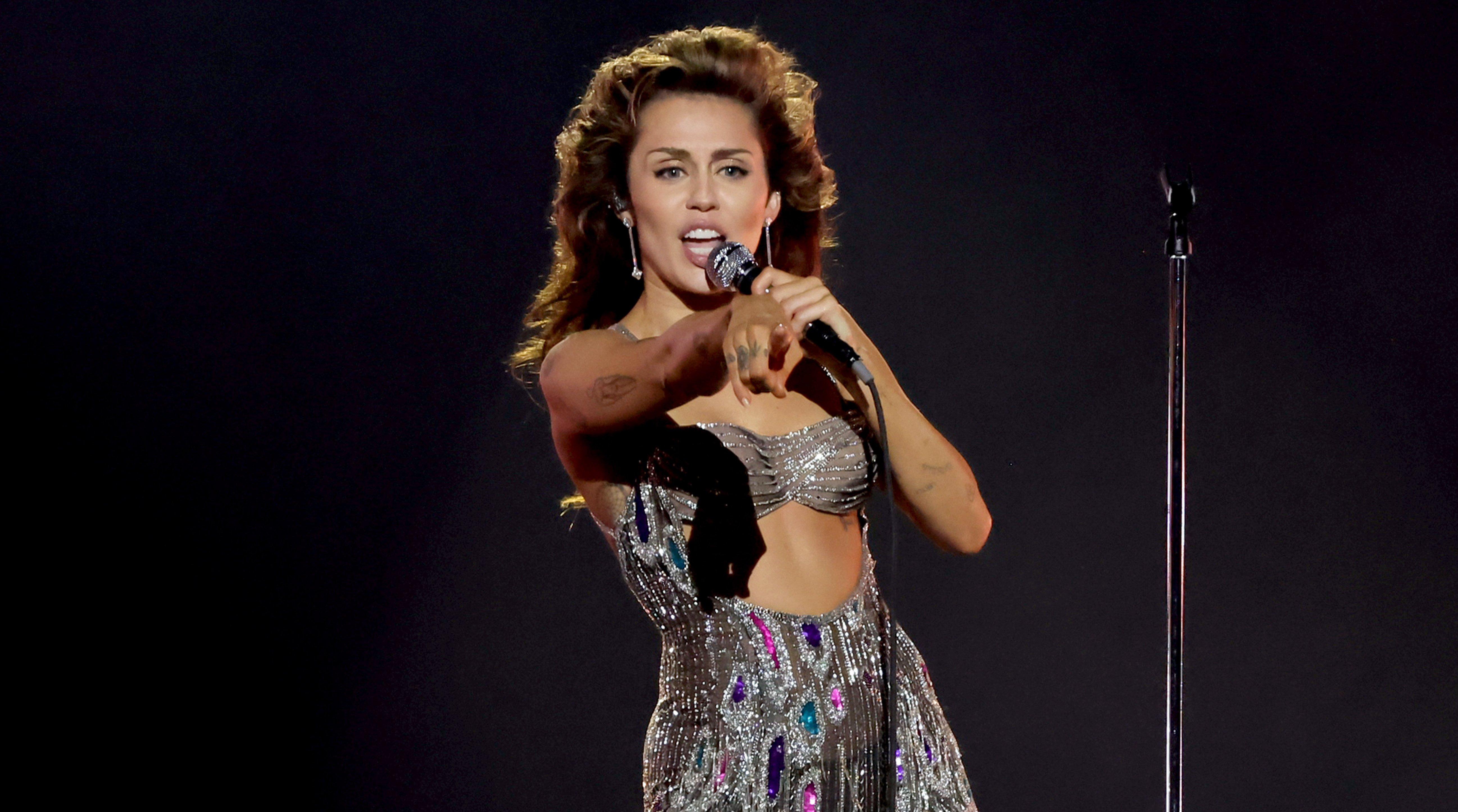
Photo: Kevin Winter/Getty Images for The Recording Academy
news
Listen: Miley Cyrus & Pharrell Reunite For New Song "Doctor (Work It Out)"
Ten years after their first funky single, Miley Cyrus and Pharrell Williams strike again with "Doctor (Work It Out)," which arrived on March 1. Hear the new track and watch the spirited music video here.
On the heels of her first GRAMMY wins, Miley Cyrus is feeling good — and she's ready to be your cure.
The pop superstar unveiled her new single, a lustful, funky dance track titled "Doctor (Work It Out)," on March 1. The track is her latest collaboration with Pharrell, and their first in 10 years.
Over a pulsating bass guitar-driven beat, Cyrus opens with the punchy chorus (“I could be your doctor/ And I could be your nurse/ I think I see the problem/ It's only gon' get worse/ A midnight medication/ Just show me where it hurts," she sings) before erupting into a dance break as she declares, "Let me work it out… Imma work it out…”
So far, 2024 is feelin' fine for Cyrus. At the 2024 GRAMMYs, her 2023 smash, "Flowers," took home two awards, for Best Pop Solo Performance and Record Of The Year. Following her first win, she delivered a knockout performance featuring the unforgettable ad lib, "I started to cry and then I remembered I… just won my first GRAMMY!"
Less than a month later, "Doctor (Work It Out)" serves as another groovy celebration of Cyrus' achievements in life and music so far.
The song's music video is reminiscent of her 2024 GRAMMYs performance, too. Not only is she wearing a similar shimmery fringe dress, but the entire video is a jubilant, blissful solo dance party.
Though Cyrus first teased "Doctor (Work It Out)" just a few days before the song's arrival, Pharrell first gave a sneak peek in January, at his American Western themed Fall/Winter 2024 Louis Vuitton Men's fashion show in Paris. It was Pharrell's third collection for the luxury house, and the bouncy single served as a fitting soundtrack.
The song marks Cyrus' first release in 2024, and her first collab with Pharrell since 2014's "Come Get It Bae" from his album G I R L'; Pharrell also co-wrote and produced four tracks on the deluxe version of Cyrus' 2013 album, Bangerz.
Watch the "Doctor (Work It Out)" video above, and stay tuned to GRAMMY.com for more Miley Cyrus news.
Miley Cyrus' Big GRAMMYs Night: Why Her Two Wins Were Monumental
